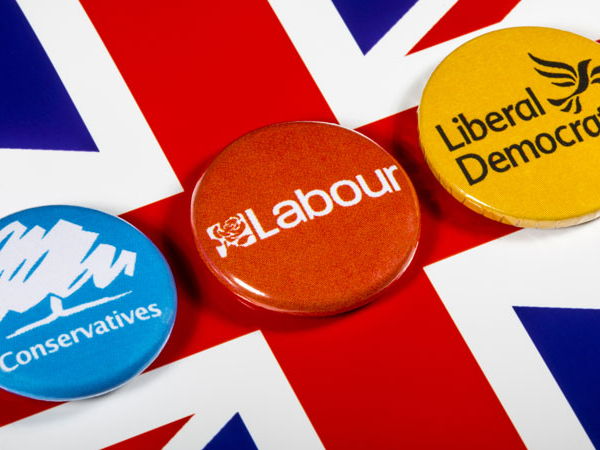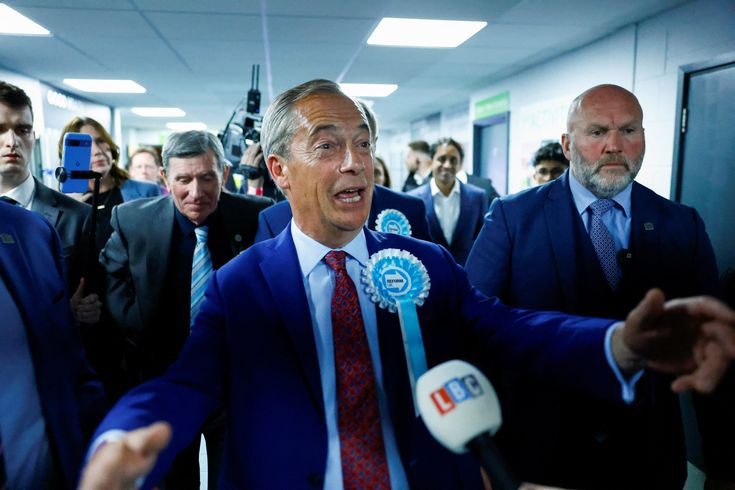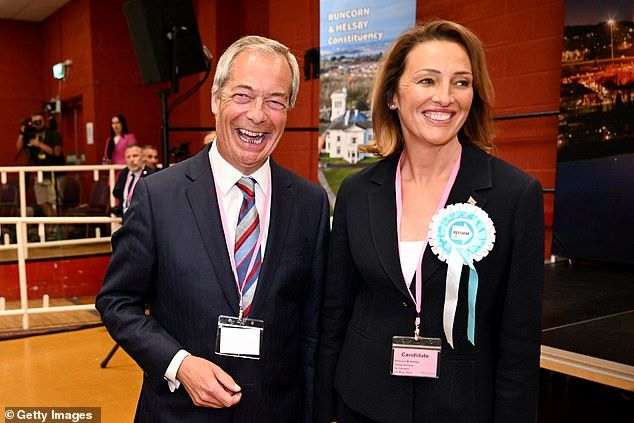The Reform UK leader, Nigel Farage, is dramatically presenting their party’s 667 election wins as a decisive indication of its appeal, not a ‘protest’ vote. Meaning, they are posturing the electoral successes they carved out as a seismic shift to positively transform the British political landscape, rather than a destructive earthquake. In Mr Farage’s view, Reform UK is an inevitable and formidable force that will vitalise Britain by reshaping its political landscape, similar to how continental drift reconstituted the Pangaea continent and created more life. Mr Farage aims to dramatically shake up the ‘whole of British politics’ by changing the two-party system.
However, some people view Reform UK’s electoral gains as a product of ‘protest votes’ and tactical voting. For example, ‘half’ of the Party’s voters in the 2025 local elections said they voted in ‘protest’ against other parties. Moreover, according to a 2025 YouGov poll, 60% of British voters view Mr Farage’s party negatively. So, Mr Farage is not making meaningful inroads to the “nationwide” power that he envisages. Reform UK represents an earthquake unsettling moderate Britain and forcing the ‘legacy’ parties (the Conservatives and Labour - according to Mr Farage) to compete harder to insulate Britain from the extreme. Indeed, to moderate British voters, Reform UK can still be perceived to be as controversial as UKIP were, because Mr Farage ‘whipped up anti-immigration sentiment’ . This poses a problem for a Party that has undergone several transformations to garner electoral appeal.
This single-issue Party, as much as it optimistically poses as a ‘real opposition’ to the Government and denies being a ‘protest party’ , has not shaped political discourse much. By these terms, the fault line of the Party’s seismic shift is marginal, contrary to Mr Farage’s claims. Only 31% of British voters overall voted for Reform UK in the 2025 local elections. Still, Reform UK did gain 41% of the vote in the local elections contested in the 2025 local elections. So, it can be perceived that they had “performed well” . However, Reform UK’s success warrants concern. Emboldened by having exceeded expectations, Mr Farage insists that the tectonic plates of the British political landscape are shifting in Reform UK’s favour. Such a political landscape could foster greater reception to Reform UK’s extreme anti-immigration attitude.

Reform UK thinks they are shaking up the ‘whole of British politics’ for the better. But, Reform UK, formerly UKIP, do not have any other policy stances, besides a vague aim to ‘control Britain’s borders’ , nor a unique policy platform to control the political agenda. So, chances are that the party’s successes are due to tactical voting, not sincere support from the British electorate. The ‘legacy’ parties, the Conservatives and Labour, as well as other parties, will want to contain the threat of Reform UK. Indeed, future party campaigns may focus on preventing Reform UK from assailing through elections more, to address the new ‘competitor’ . Certainly, this would be welcomed by moderate Britain. Following the 2025 local elections, moderate Britain must be wondering how a party without a stake in the political agenda can ever be fit to govern. Particularly, Mr Farage has not made a profound impression in Parliament for his Party since being elected in the 2024 general election. For example, Mr Farage has been reported to have a notably low number of Parliamentary interventions as an MP.
Mr Farage is now more reserved in the spotlight. Whereas, in the past, Mr Farage could have been perceived as more comfortable with his Party’s notoriety as the most hard-line Party on immigration, but now Mr Farage is concealing their extreme nature, to broaden their party’s appeal. Now Mr Farage, seemingly to temper the overtly extreme nature of the their party, insists there is a caveat to their party’s hard-line attitude: in an interview, by political correspondent Louisa James, Mr Farage asserts that the ‘big issue’ that the his Party stands for is their opposition to illegal immigration, not legal immigration. This is a misleading backtrack. Mr Farage’s Party is a party fundamentally shaped around restrictive movement, particularly with its UK Independence Party (UKIP) history: a party known for its extreme stances on illegal and legal immigration.
The “distinction” between illegal immigration and legal immigration, Mr Farage made, is a new and nuanced claim, probably formulated by a political advisor. Reform UK notoriously treats illegal immigration and legal immigration with the same contempt. For example, the Party’s 2024 general election manifesto pledged to reduce legal immigrants’ dependents (or ‘non-essential’ immigrants, as Mr Farage describes them). For instance, foreign students - a key hallmark of a nation with healthy freedom of movement, to all but Mr Farage - could not bring dependents if Mr Farage had their way in government. Moreover, the Party is notorious for taking a ‘zero’ tolerance approach to immigrants crossing the channel. By these terms, the Party’s pledges indicate their actual attitude towards freedom of movement.

What is clear is that Reform UK is shying away from its true colours. Perhaps, Mr Farage is trying to present his party as ‘moderate’ , instead of extreme. But, still, no one knows whether Reform UK is fit to govern anywhere in England, nor everywhere in Britain, as Mr Farage suggests. Moderate Britain will be hoping that the tectonic plates of the British political landscape shift back to the traditional two-party system, which favours the ‘legacy’ parties once again. Some British voters who admitted to voting in a ‘protest’ of the ‘legacy’ parties may disagree. But, although ‘Business as usual’ politics may be underwhelming for a nation with an appetite for nation-building projects, such as improving the quality of life, ‘business as usual’ politics is more moderate than Mr Farage’s Party. Moderate Britain knows, ‘Business as usual’ politics can insulate Britain from extreme views.
The force of Reform UK in the 2025 local elections has been represented as an earthquake in British politics, shaking up the British political landscape. Meaning, this Party seeks to subvert the traditional two-party system with an anti-establishment sentiment, to open up a more ‘competitive’ political environment. But, they are reinforcing the ‘two-party system’ by claiming that they are now the ‘real opposition’ to the Labour government, dismissing any other parties. This shows that the Party, contrary to their claims, are not radically anti-establishment, just extreme and calculated. If Reform UK is the ‘real opposition’ to the Labour government, they are a stakeholder in the establishment.
To surmise, power-hungry Reform UK are insatiable for renown in British politics. Yet, the Party has an identity problem: a single-issue party with an extreme and controversial reputation. This problematic party’s rise must be a product of tactical voting, not genuine electoral appeal. Whilst everyone is scrambling to measure the impact of Reform UK, moderate Britain knows that Reform UK’s gains represent a destructive earthquake that is unsettling to British politics.
 Terrel Mollel
Terrel Mollel